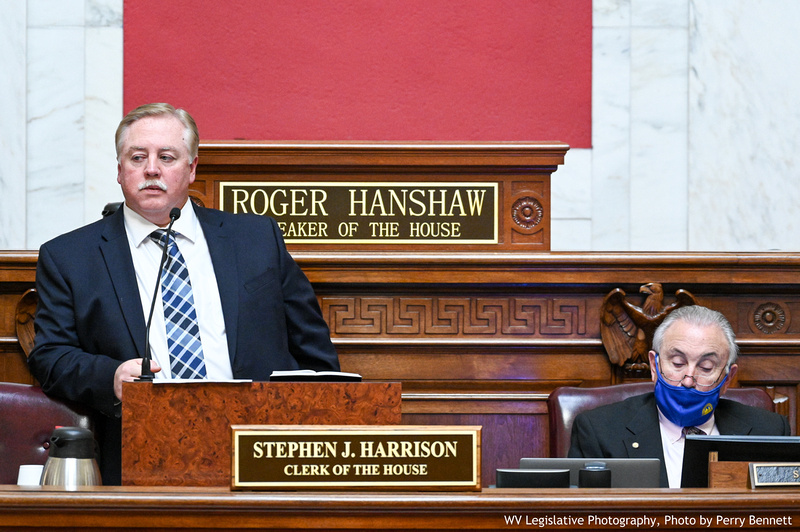Both chambers of the Legislature are considering resolutions that could provide more flexibility with some property tax rates.
The House Finance Committee today passed out HR 3, which could lead to a Constitutional amendment allowing exemptions to the property taxes paid for machinery and equipment.
The Senate is considering a broader resolution that would apply to personal property taxes ranging from machinery and equipment to inventory to the tax on vehicles. That resolution passed out of Senate Judiciary on Thursday evening and goes to Senate Finance next.
The Senate’s resolution designates the issue as Amendment No. 1 also known as the “Motor Vehicle and Other Personal Property Tax Reduction Amendment.”
If either resolution is passed by the Legislature that’s not the end of the decision-making. The citizens of West Virginia would decide on a constitutional amendment on ballots during an upcoming General Election.
Property taxes have been defined in the state Constitution since the early 1930s. Lawmakers have long talked about having more flexibility, particularly with the property taxes businesses pay on equipment and inventory.

After last fall’s General Election, House Speaker Roger Hanshaw described action on property taxes as a top goal. Passing a resolution that could lead to a constitutional amendment requires a two-thirds majority vote, and Republicans in both chambers of the Legislature achieved supermajorities this year.
“One of the things I expect we’ll take up very early on is a proposal that simply gives tax policy to the Legislature. I expect we’ll advance that very early,” Hanshaw, R-Clay, said last November.
A broader resolution was first introduced in the House. But the House Finance Committee substituted in a narrower version on Friday morning. The House Finance resolution could eventually allow legislators to define property that would be taxed, said Delegate Vernon Criss, R-Wood.
The state in recent years has gotten around property taxes for some companies’ equipment by buying it and leasing it back to the company. That’s a workaround often called, PILOT, or payment in lieu of taxes. For example, Criss cited the Hino Motors plant in Williamstown as a company operating under those conditions.
This could eliminate that workaround.
“Then existing businesses will have the same opportunity as these new businesses that have come and carved this situation out,” said Criss, the vice chairman of the House Finance Committee.
“Hino’s not the first one and won’t be the last. But there’s several of those businesses out there that we’ve allowed that to happen, and it seems to be unfair to the existing homegrown businesses we have in our communities that employ people — and the opportunity for them to employ more people because they would have a lesser burden of inventory tax or equipment tax placed upon them.”
The amendment could give legislators the option of making such changes. But there would need to be future legislative action to do so.
“All this does is gives the Legislature permission at some future point to decide how to do this,” Criss said. “Because obviously you’re going to affect county collections of personal property taxes. So those future Legislatures are going to have to use a defined line of, ‘OK, if we cut these taxes on this particular stuff, where do we backfill the counties so the boards of education on the local levels are not going to be harmed financially by doing this.”
That could be done either from General Revenue dollars or by some other taxation method. It would be up to those future legislators to decide.
Concerns about how property tax cuts could affect local governments was a central topic when the Senate Judiciary Committee considered its resolution.
Most of the money from personal property tax goes to county school boards, county commissions and municipalities.

“We do have concerns about how the Legislature will form policy around property tax issues, holes that may happen and how they are filled,” said Jonathan Adler, executive director for the West Virginia Association of Counties.
“County officials hope to have a seat at the table — our assessors and county commissioners know their stuff and may have great ideas. iving the people a vote on these resolutions/amendments is certainly right and proper.”
So many steps would need to be taken before anything is final, Criss said, the specifics of how to make up the money to local governments could be worked out.
“It’s not immediate. It may be five years down the road. It may be 10 years down the road. It may be never,” Criss said. “They may not come to a mutual agreement on how to do this. But at least this is the first step to allow those discussions to start happening.”

